
"Lipstick king" Li Jiaqi was once one of the famous livestream "warriors" in China - Photo: Weibo
On October 28, Sina newspaper reported that the Cyberspace Administration of China (CAC) has just launched a two-month special campaign nationwide.
The campaign aims to strengthen the management of donation behaviors in livestreams and build a healthy online broadcasting environment, developing the industry in a legal and orderly direction.
Clear regulations on donations via livestream
The campaign focuses on areas prone to abnormal donations in livestreams, severely dealing with four prominent issues: inciting viewers to donate with obscene content, deceiving viewers with fake images, enticing minors to donate, and encouraging users to make unreasonable donations.
Actions that will be handled include broadcasting obscene actions, sounds, using camera angles, settings or costumes to create a vulgar atmosphere; organizing offensive games such as choosing a "wife" with cards or touching people while masked; using offensive behavior such as kneeling, crawling, screaming to entice viewers to interact or donate.

Livestreaming to receive gifts is widespread in China - Photo: HK01
In addition, the campaign also targets fake images such as poor families, intellectuals returning from abroad, impersonating soldiers, teachers, doctors, creating fake stories about unhappy families or violence, bullying or using AI to create fake content to lure viewers into donating.
Regarding the solicitation of minors to donate, the campaign focuses on handling behaviors that instruct children to borrow parents' information to make donations, avoid platform supervision, or deliberately fail to prevent or even encourage children to donate.
The Cyberspace Administration of China requires local management units to adhere to a "problem-based, efficiency-oriented" approach, focusing on key areas that need to be handled, investigating and severely punishing typical negative cases, and making them public.
At the same time, strengthen the supervision of livestream platforms and online hosts, take real responsibility for the management of platforms and hosts, and improve the long-term management efficiency of the issue of calling for donations in livestreams.
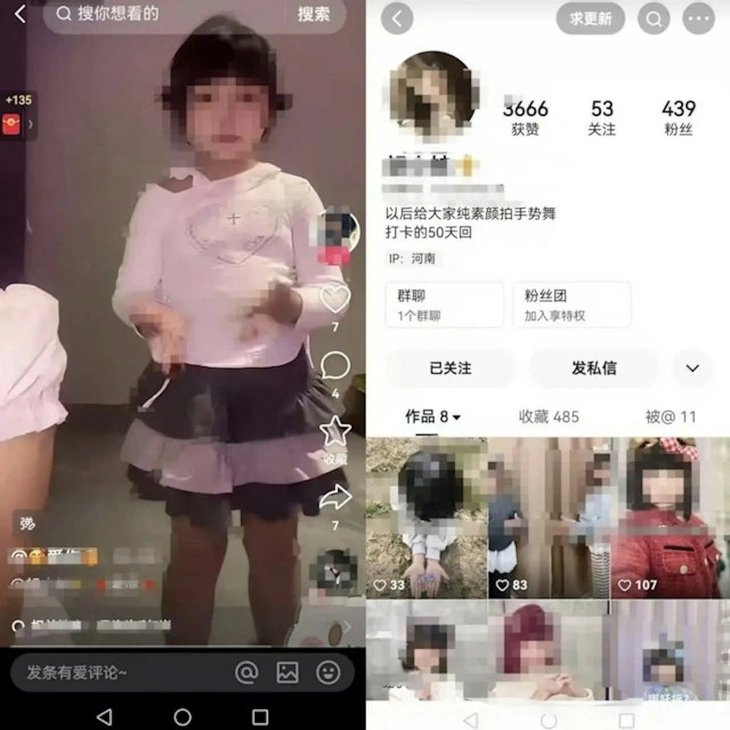
A 7-year-old girl wears heavy makeup and dances live on live broadcast - Photo: HK01
This is not the first time China has issued regulations on livestreaming. In July 2022, the State Administration of Radio and Television of China and the Ministry of Culture and Tourism jointly issued the "Behavioral Standards for Network Streamers", requiring professional streamers to have a corresponding professional certificate.
In particular, livestream content that requires high levels of expertise such as medicine, finance, law or education requires the live broadcaster (streamer) to have a legal practice certificate and report to the livestream platform. The platform will be responsible for reviewing and storing the streamer's certificate records.
According to Xinhua News , in recent years, the livestream industry in China has developed rapidly. The 49th Report on Internet Development shows that as of December 2021, there were 703 million livestream users, accounting for 68.2% of the total number of Internet users in China.

China once issued regulations requiring streamers to have a practice certificate in a field close to life to be able to broadcast live - Photo: REUTERS
However, the quality of content and streamer qualifications are still very different, especially in areas close to life such as law, finance or medicine , leading to risks to community awareness and safety.
On the platforms, many certified personal and business accounts appear at the top of the list when searching for the keyword "finance", but there are still some uncertified accounts broadcasting live streams about investments, leading to the risk of fraud and illegal advertising.
From this regulation, major platforms such as Douyin, Kuaishou, have required professional certification such as professional certificates, working certificates and related documents.
For WeChat Video Account, if there is none, the platform will take measures such as locking the account, stopping livestreaming, limiting recommendations, deducting credit points, combined with user monitoring and periodic checks to manage content.
Source: https://tuoitre.vn/trung-quoc-siet-chat-livestream-kiem-soat-quyen-gop-yeu-cau-chung-chi-hanh-nghe-20251029155824617.htm



![[Photo] New-era Party members in the "Green Industrial Park"](https://vphoto.vietnam.vn/thumb/1200x675/vietnam/resource/IMAGE/2025/10/30/1761789456888_1-dsc-5556-jpg.webp)
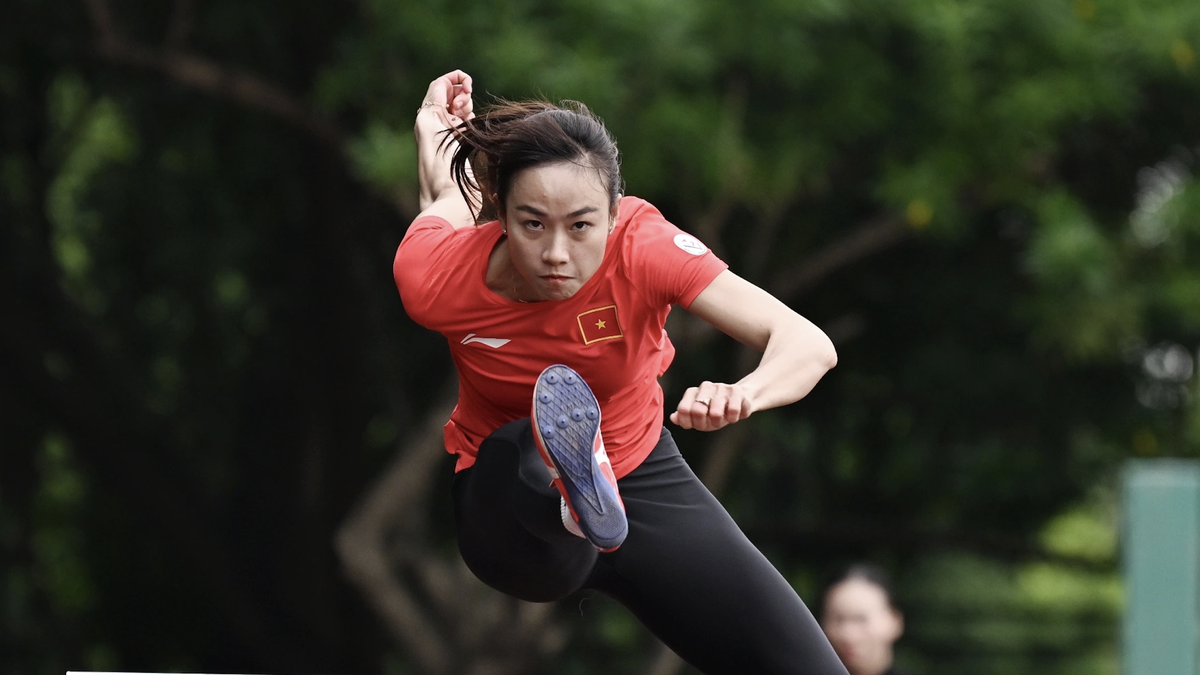
![[Photo] Prime Minister Pham Minh Chinh chaired a meeting to evaluate the operation of the two-level local government model.](https://vphoto.vietnam.vn/thumb/1200x675/vietnam/resource/IMAGE/2025/10/29/1761751710674_dsc-7999-jpg.webp)
![[Photo] Fall Fair 2025 - An attractive experience](https://vphoto.vietnam.vn/thumb/1200x675/vietnam/resource/IMAGE/2025/10/30/1761791564603_1761738410688-jpg.webp)

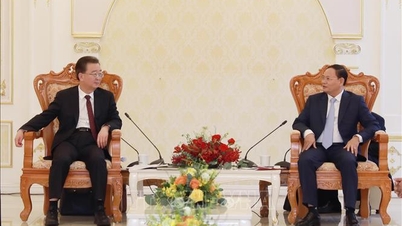

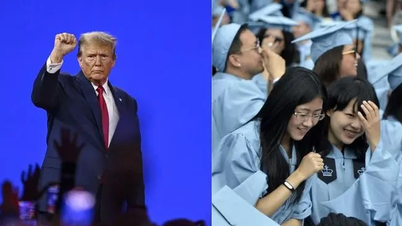


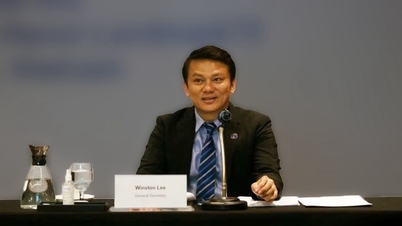













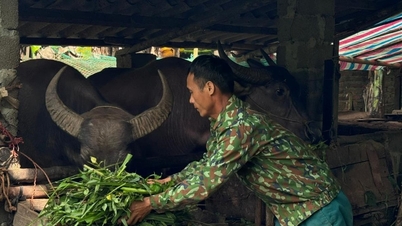




















































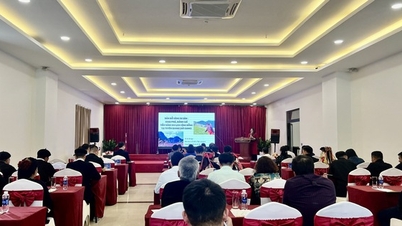



























Comment (0)